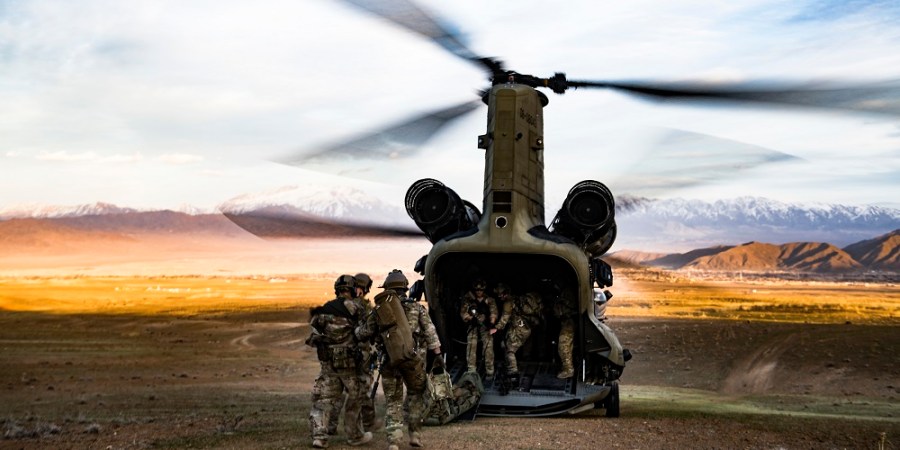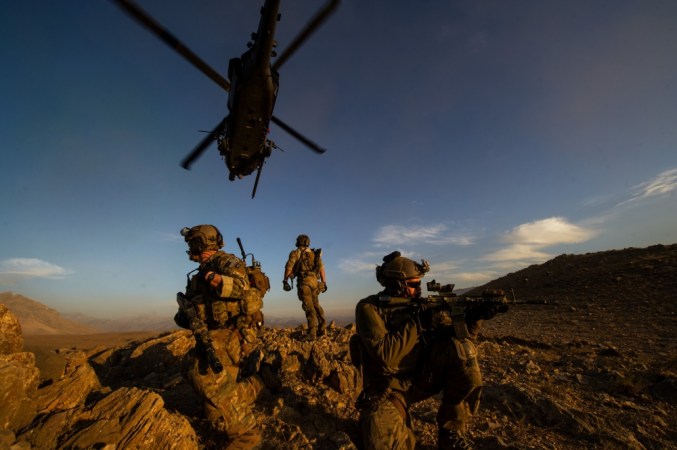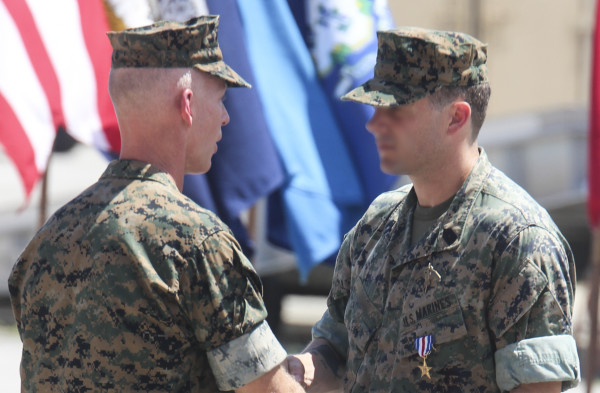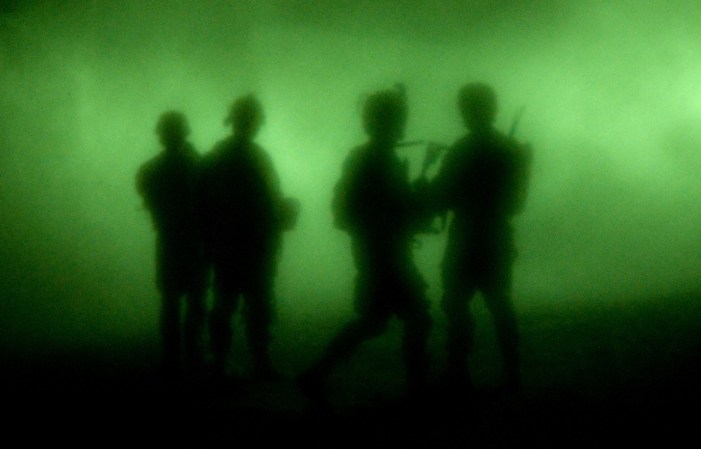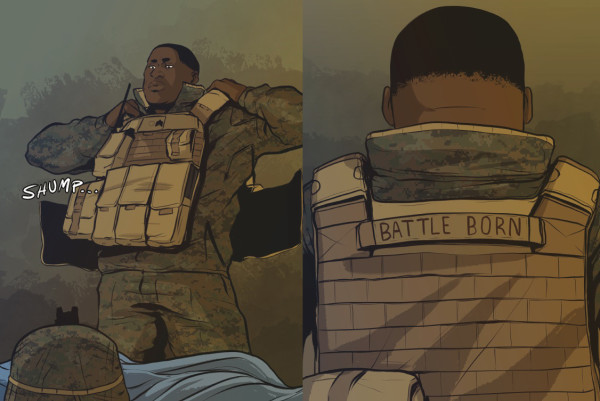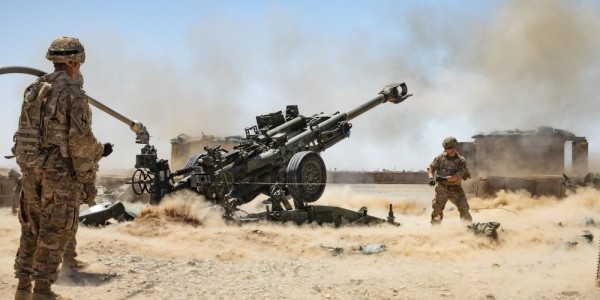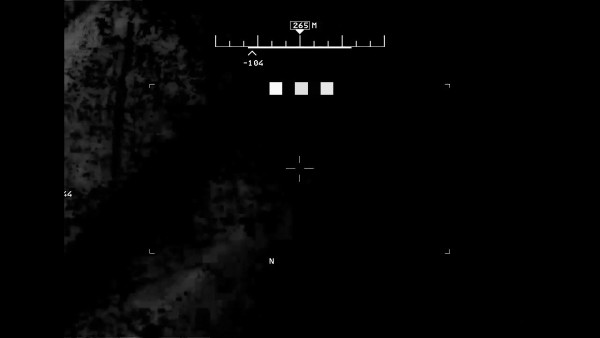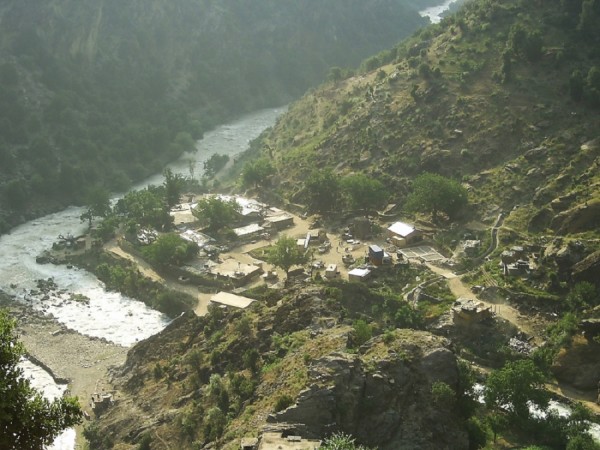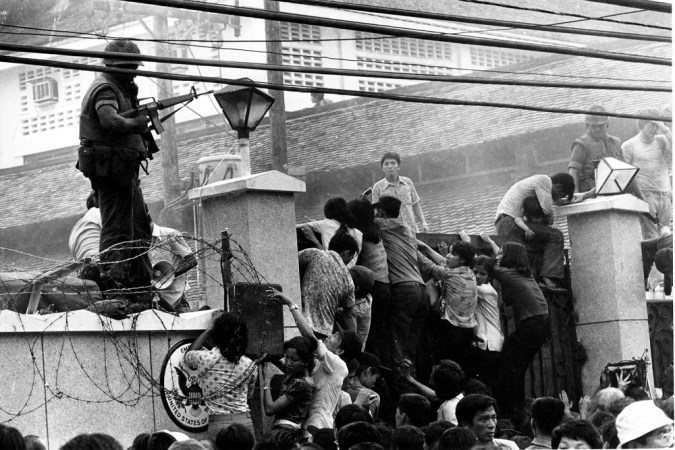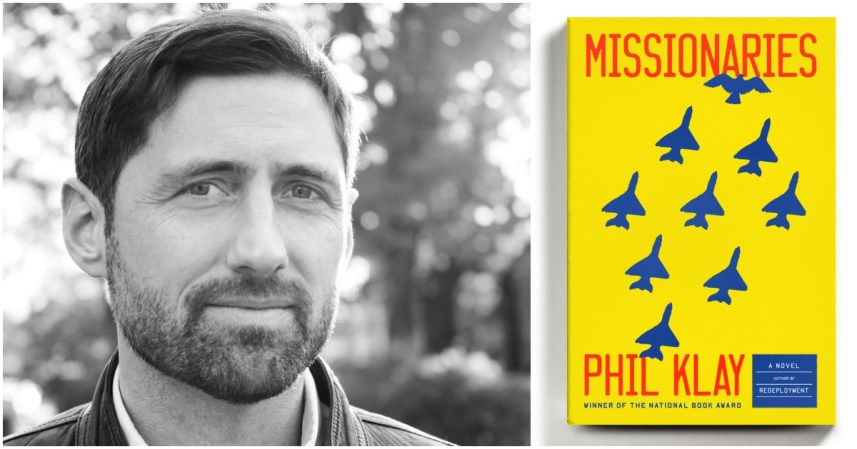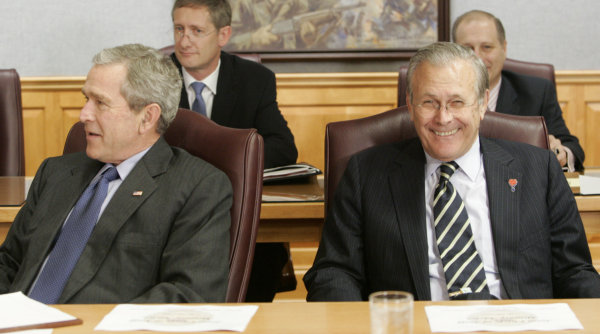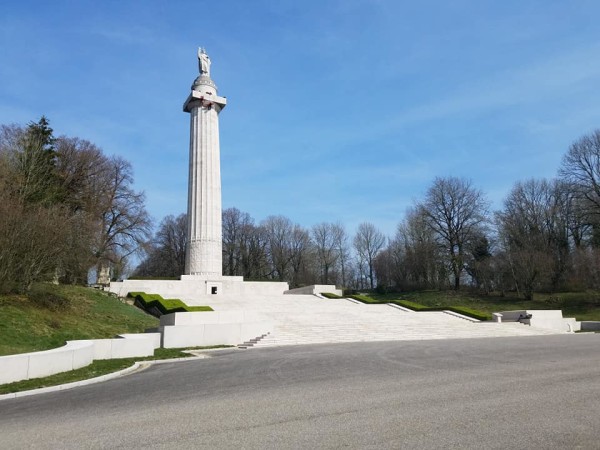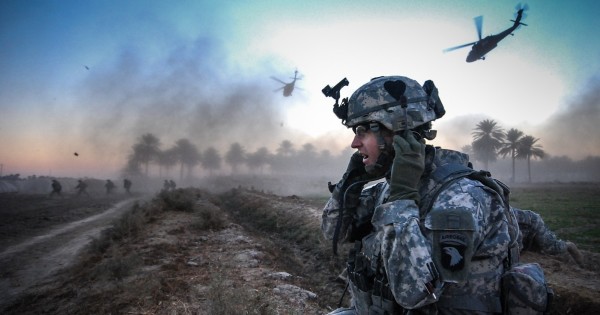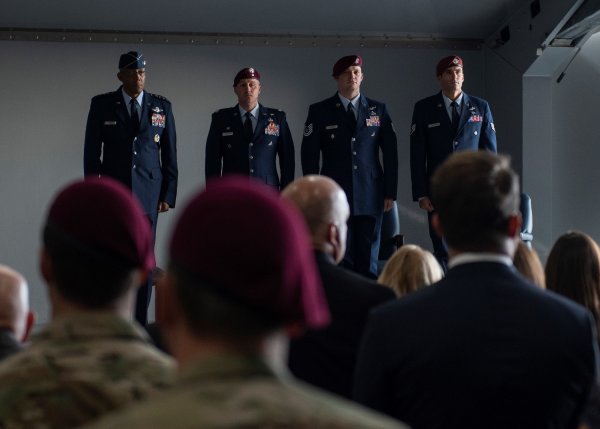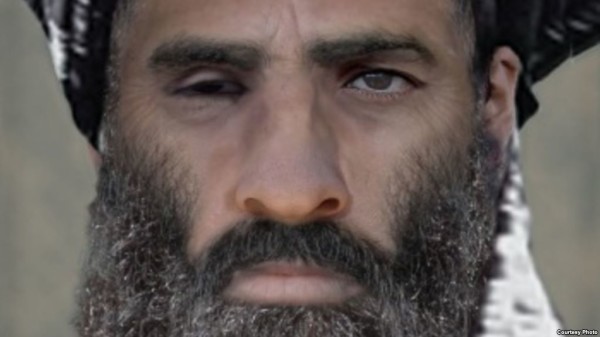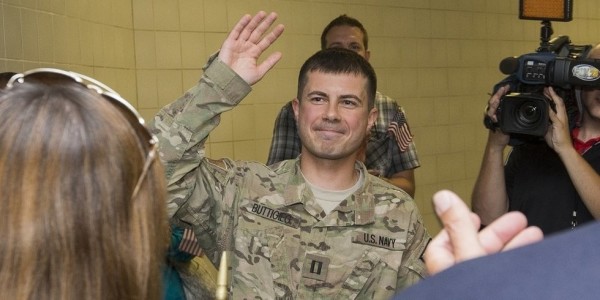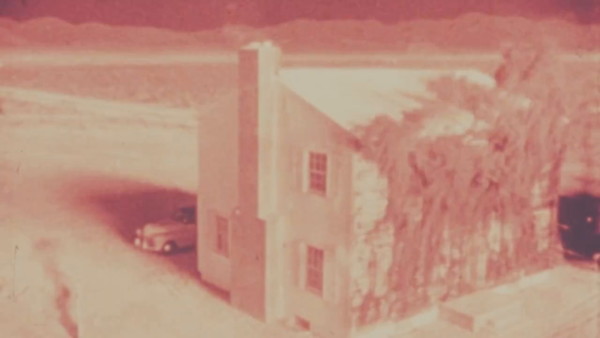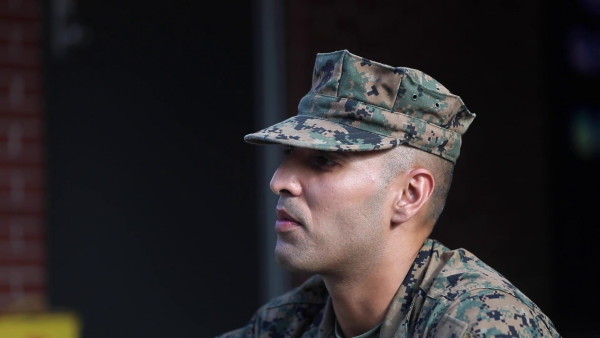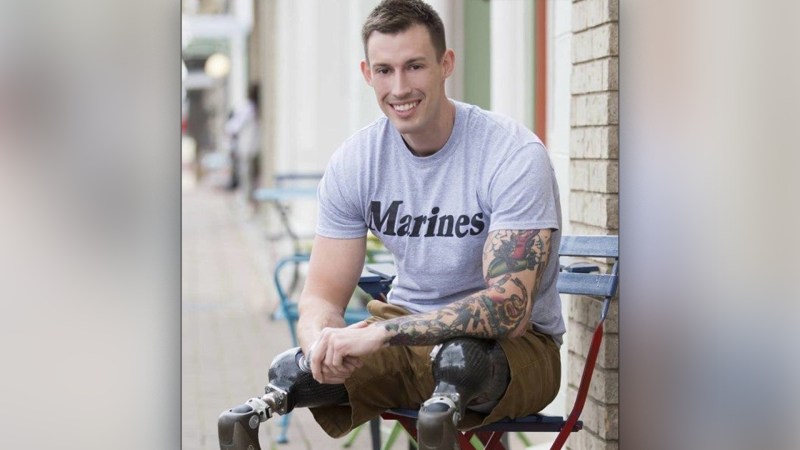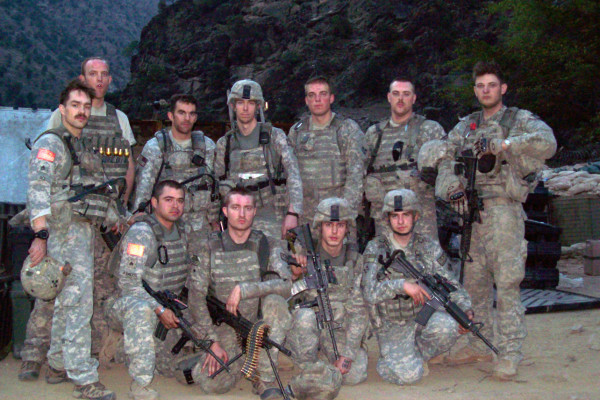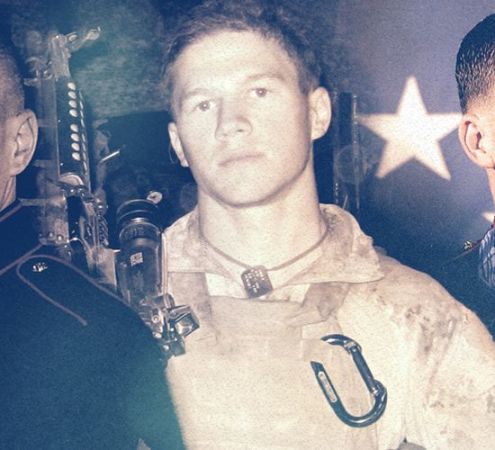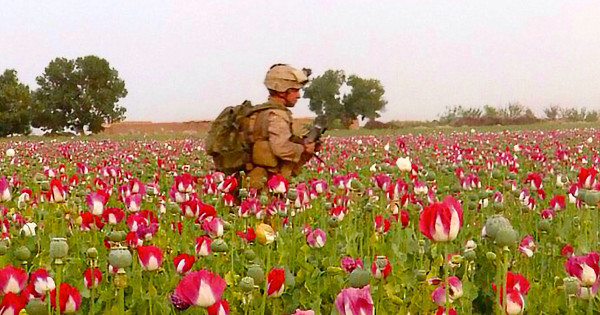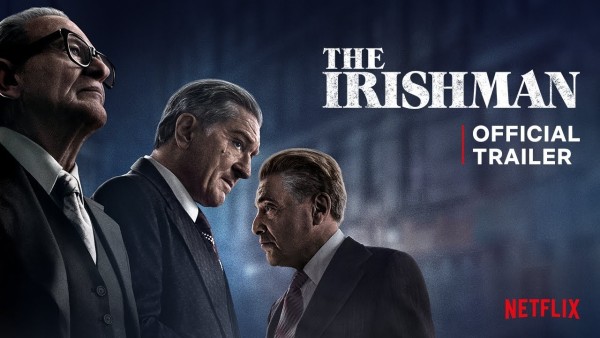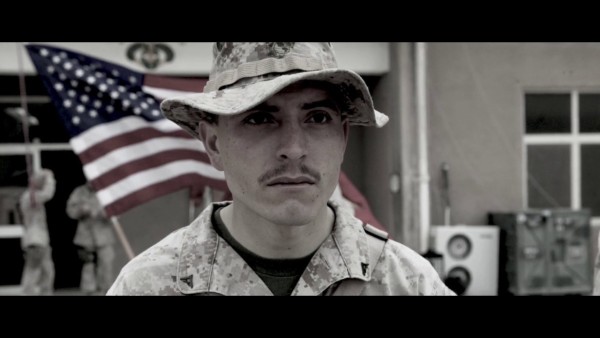Elliot Ackerman is a former MARSOC officer, CIA tactical officer, combat veteran of Iraq and Afghanistan, recipient of the Bronze Star and Silver Star Medals, and author of eight books – most recently The Fifth Act, which chronicles his coordinated attempts to get people he knew and worked with out of Afghanistan as the Taliban seized control of Kabul in August of 2021. The following is an excerpt from that book:
The Fifth Act: America’s End in Afghanistan
We have a code in the military: Leave no one behind. No matter what you think about the end of the Afghan war, this past summer America asked its veterans to break this code, to leave tens of thousands of our allies behind, abandoning them to the Taliban.
As Kabul fell, a group of veterans, journalists, and activists rallied together to evacuate as many of our Afghans allies as possible. We made lists, we called in favors with old comrades, we even negotiated with the Taliban, but knew our efforts would prove futile because we knew we couldn’t get everyone out and too many of our one-time allies would be left to the mercy of the Taliban. Like so many involved in this effort, this dredged up conflicted memories from my past, sucking me back into a war I thought I’d left long ago.
No American war has ever ended the way that Afghanistan did, in which those who were being abandoned could communicate directly with the outside world in real time on WhatsApp, Signal, and other platforms. The result was not only what’s been called a “Digital Dunkirk,” but also a strange collapse of distance, in which I could be on summer holiday with my family while simultaneously helping an Afghan family navigate the Marine checkpoints at Kabul airport on my phone.
The Fifth Act: America’s End in Afghanistan is three stories overlaid: the first is the politics of the war told in five acts, like the classic five-act structure of a tragedy; the second is five distinct evacuation cases I was involved in this summer; the last story is from my past in Afghanistan, when I had to leave a comrade behind. That decision has haunted me and is something I’ve never written about before, not since this summer brought those memories violently to the surface again.
What follows is the opening chapter of this story.
Prologue.
A Hotel Room, Rome at night
The war has always been there, even though I don’t go to it anymore. It is older than my children, who sleep in the room next door. I learned to love it before I learned to love my wife, who fits her body beside mine in the bed. The war is ending—has been ending—for some time. And it is disastrous.
Kabul fell five days ago.
But even before that, my phone had begun ringing. The calls have built in urgency and followed me here, unexpectedly, on a long-planned summer holiday with my family. Today, I toured the sights with my children—the Coliseum, the Forum, the Baths of Caracalla. They complained about all the walking. They are too young to appreciate the ruins of an expired empire; still, I tell myself they’ll remember walking these ruins.
All day, I lagged behind my wife and children, tapping out text messages, taking calls. I am working most closely with Nick, a friend and journalist who has organized a convoy of four minibuses for tonight. There are 109 people manifested on these buses. They are Afghan interpreters, activists, journalists. In the early morning hours, they will gather at the Serena Hotel in Kabul and board the buses for the airport. Another journalist has negotiated the convoy’s safe passage through the Taliban’s newly established checkpoints in Kabul. My job is to assure the convoy’s safe passage through the American checkpoints, specifically one gate at the airport. On the map, it is listed as the Unnamed Gate.
Afghan paramilitaries are manning the Unnamed Gate. An old friend of mine, Jack, runs the CIA program that pays these paramilitaries. In our twenties, while in the Marines, Jack and I went through training together. He has made a career at CIA and now oversees a vast network of paramilitary operations around the world. It takes me all morning to get through to him. Eventually, he returns my call. Hat-in-hand, I ask for his help. He deadpans, “I’m kinda busy right now.” When I ask again, he says simply, “I’ll see what I can do.”
My wife’s aunt, who has since passed away, was by all accounts a very glamorous woman and for many years was married to an equally glamorous Roman named Benito. That afternoon, once we’d finished touring the ruins, he came to our hotel with his daughter to meet us for a drink. Benito is in his nineties and was once ranked among the greatest professional bridge players in the world, winning tournaments from Monte Carlo to Las Vegas. We sat outside on the terrace overlooking the swimming pool. His memory is faded, but he wanted to see the children, who play nearby chasing pigeons who peck the food from our table. Then Nick calls and I excuse myself. He explains that the U.S. embassy has issued an advisory for an imminent terrorist attack at the airport. We debate whether we should postpone the convoy by a night. Nick isn’t sure whether the Taliban will let us through tomorrow. All day long I’ve been trying to get some confirmation from Jack that our convoy will be allowed to enter the Unnamed Gate. Nick wants to know if I’ve heard anything else from him. How confident am I that Jack will come through for us? I tell him that I don’t know. We decide to stick to the original plan and go tonight.
When I return to the table, my wife asks if everything is all right. I find myself apologizing to Benito and his daughter. I begin to explain what’s going on, figuring there’s no one they’re going to tell. They listen attentively. Benito’s eyes are upturned for a moment as if he is making calculations on my behalf. Then he says, “That is a difficult situation.” His daughter frowns. A brief silence settles between us.
Now it’s time to go. The buses are loading at the Serena Hotel. I’m monitoring their progress on my phone, in a chatroom on Signal. I’ve gotten up from the bed where my wife sleeps, and I’m sitting at the hotel room desk. The lights of the city suggest themselves from behind the translucent curtain. Aside from that and the screen from my phone the room is dark. Most of the passengers on the buses are strangers, but one family is not. My interpreter Ali and I fought alongside one another more than a decade ago in Shkin, a mudwalled firebase along the Pakistani border. Our Counter Terrorist Pursuit Team manned the southeastern-most outpost in the country. People called it “the end of the line.” Our CTPT had T-shirts made up. Ali lives in Texas now. His mother and father in Kabul have received death threats from the Taliban, phone calls and a letter delivered to their house. They are on the bus, along with his two sisters who he reminds me are “still young and very scared.” Floating ellipses paired with the word typing often appear beneath his profile as he composes anxious messages that he never delivers; instead, he mostly responds to my updates with a simple ok.
The buses are leaving the Serena Hotel, 109 people in all.
Still no word from Jack. They are headed to the Unnamed Gate.
Scene I.
Fort Story, 2002.
The sandhill was called Loch Ness. It rose out of the Virginia coastal flats like the hump on that mythical sea dragon. Every conditioning hike at the Marine Corps Amphibious Reconnaissance School—known as ARS—ended with a sprint up Loch Ness. The instructors watched us closely, and if you stumbled or your rifle touched the sand like a crutch, they would push you down the hill and tell you to start again. Temperatures hovered in the nineties that summer. More than once I vomited in the sand. Most of us did. Years later, a friend of mine who graduated the course kept a glass Coke bottle filled with Loch Ness sand on the mantle above his fireplace. He said he kept it there as a reminder for when things in his own life got difficult. Written in black sharpie on the bottle was the word Perspective.
Jack and I met at ARS not even a year after 9/11. The war was new then. No one understood how long it would last or where it would take us. We even worried we might miss it. I was a year from finishing college and had talked my way into attending the course, where we lived in a squat barracks atop the hill.
Jack was about to take command of an elite force reconnaissance platoon. Every week or so, the instructors would give us a night or even a whole day off. We would drive into town in Jack’s car, a beat-up sand-brown Jeep Cherokee his parents had given him when he graduated college. Because I was only an ROTC midshipman and he was a commissioned officer—a first lieutenant—I called him sir. The Marine Corps is a funny place, the type of place where you call your friends sir.
Jack is a Southerner, raised among the Blue Ridge Mountains. In college he minored in creative writing. He likes to talk about Faulkner and Walker Percy. He’s a fan of the poet James L. Dickey. For years, Dickey worked in advertising. He wrote copy for Coca-Cola and Lays potato chips while writing poetry after work. Later, Jack tells me something Dickey once said about his poetry: “I was selling my soul to the devil all day and was trying to buy it back at night.” At ARS, Jack used to string a poncho around his bunk so he could read late into the night with a headlamp. He would keep his books stacked beneath his bed, alongside his combat boots. In Afghanistan, years later, guys would call him the American Pashtun. I think he liked this. He spent so much time in Afghanistan that the Musa Khel around Khowst would eventually grant him tribal membership. Two decades ago, driving out the gate onto Route 60 toward Chilis or Applebee’s, after days spent training in the Virginia woods, I remember the Steve Earle CD he would play. The album was 1995’s Train a Comin’ and the track was Mercenary Song. It goes like this:
Me and old Bill there, we both come from Georgia
Met Hank out in New Mexico
We’re bound for Duranqo to join Pancho Villa
We hear that he’s paying in gold
I guess a man’s got to do what he’s best at
Ain’t found nothing better so far
Been called mercenaries and men with no country
Just soldiers in search of a war
And we’re bound for the border, we’re soldiers of fortune
Well, we’ll fight for no country, but we’ll die for good pay
Under the flag of the greenback dollar
Or the peso down Mexico way
Neither one of us suspected our wars would go on for twenty years. That we would become like the professionals Steve Earle sang about. When the Taliban-led government refused to turn over Osama bin Laden after 9/11 and President Bush sent the first U.S. combat troops into Afghanistan on October 7, 2001, it took only two months of fighting for the Taliban to collapse. The war—as we understood it then—had proven swift. The summer Jack and I met, the U.S.-backed Islamic Republic of Afghanistan was formed and, even though bin Laden had escaped, the media was debating whether the time had come to declare victory in Afghanistan. This triumphal air soon vanished.
Of the many fatal mistakes made in our Afghan tragedy, the Bush administration would soon make the first: it would begin the war in Iraq. Within a year, Jack would be in Iraq leading a platoon during the invasion. Within two years, I would also be in Iraq, leading a platoon in Fallujah. Afghanistan is the older war, but for both of us Iraq was our first war; we deployed there first because Bush had made Afghanistan a second-tier priority. As the Iraq War raged, the lack of U.S. focus in Afghanistan set conditions for the Taliban to reconstitute in neighboring Pakistan. By 2005, a Taliban-led insurgency re-established itself in Afghanistan. President Bush’s fixation on Iraq allowed this. What neither of us knew as we suffered through training in 2002 was that the Bush administration was laying an architecture that would sustain twenty years of war.
To wage war, America has always had to create a social construct to sustain it, from the colonial militias and French aid in the Revolution, to the introduction of the draft and the first-ever income tax to fund the Civil War, to the war bonds and industrial mobilization of World War II. In the past, a blend of taxation and conscription meant it was difficult for us to sustain war beyond several years. Neither citizens nor citizen soldiers had much patience for commanders, or commanders-in-chief, who muddled along. Take, for example, Washington reading Thomas Paine’s The American Crisis as a plea to his disbanding army before they famously crossed the Delaware (“These are the times that try men’s souls . . .”) or Lincoln, whose perceived mismanagement of the Civil War made his defeat in the 1864 presidential election a forgone conclusion to many, until Atlanta fell to the Union two months before the vote. The history of American warfare—even the “good” wars—is a history of our leaders desperately trying to preserve the requisite national will because Americans would not abide a costly, protracted war. This is no longer true.
After 9/11, in the opening act of the wars that follow, the Bush administration engineered a new type of war, one that is ahistorical—and seemingly without end. Never before has America engaged in a protracted conflict with an all-volunteer military that was funded through deficit spending. By the end of the Afghan War, our national debt hovered at around $28 trillion, with approximately $6 trillion being the bill for our post-9/11 wars, by far America’s longest. In the aftermath of 9/11, there was no serious public debate about a war tax or a draft. Our leaders responded to those attacks by mobilizing our government and military, but when it came to citizens, President Bush said, “I have urged our fellow Americans to go about their lives.” And so, by the summer of 2002, as Jack and I were listening to Mercenary Song, the war effort had already moved to the shopping mall.
For those who fight in a never-ending war, it becomes something that doesn’t end. To finish it, the war becomes something that you must chose to leave. A decade in, when I make this choice, it nearly ended my friendship with Jack. And that night, in Rome, I wonder if he’s forgiven me when I ask him for one last favor in Afghanistan.
+++
Elliot Ackerman is a former MARSOC officer, CIA tactical officer, combat veteran of Iraq and Afghanistan, recipient of the Bronze Star and Silver Star Medals, and author of eight books – most recently The Fifth Act, which chronicles his coordinated attempts to get people he knew and worked with out of Afghanistan as the Taliban seized control of Kabul in August of 2021.

